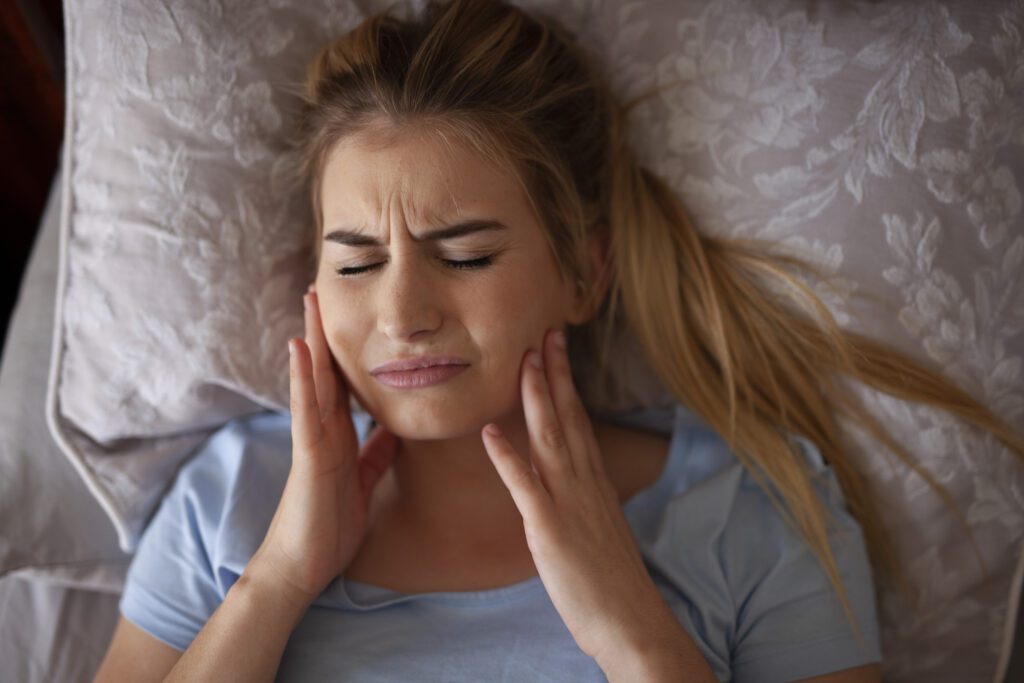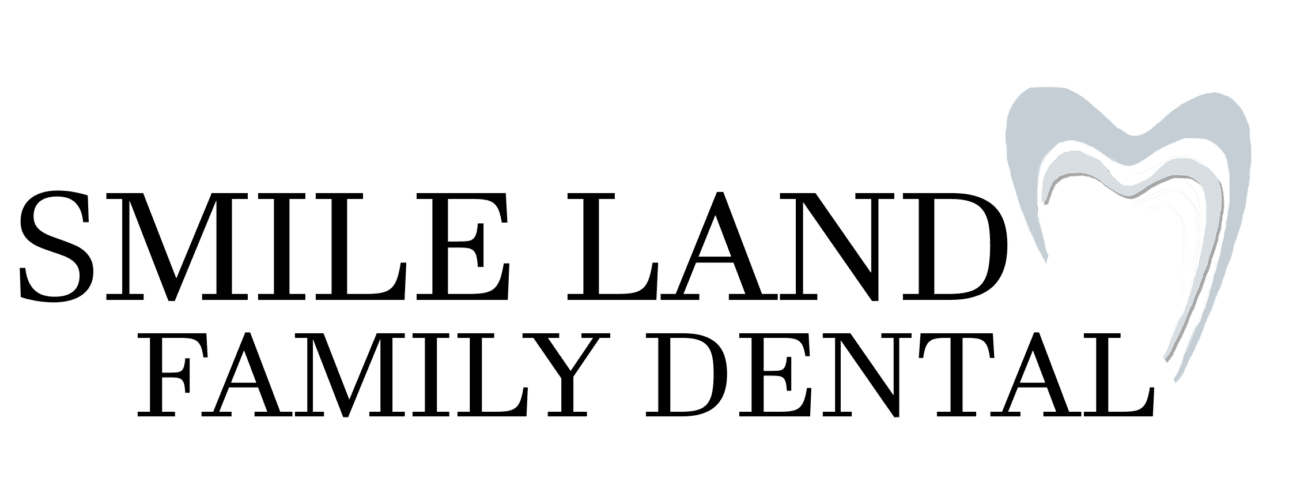Temporomandibular Joint Disorders (TMD) happen when there is stress or damage to the joints connecting your skull and jawbone. This bite disorder can cause jaw pain, headaches, and wear on your teeth. Dr. Bassam Abazid offers TMJ treatment in San Antonio, TX, to help make your smile and daily life more comfortable. We also provide other restorative dental services for our patients in our San Antonio, TX, dental office.
The temporomandibular joints (TMJ) act like sliding hinges, allowing you to bite and chew. If you have TMD, you might also harm the disc that cushions the jaw joint. Damage to this cartilage can affect your mouth, face, and even upper body.

What is Bruxism?
Bruxism is when you clench or grind your teeth, often because of stress. Most people do this while they sleep, but some do it during the day as well. Bruxism can cause muscle pain and other issues. It’s important to manage bruxism early to prevent lasting damage.
If you grind your teeth only occasionally, you might experience minor damage. But frequent grinding can lead to more serious problems, like jaw muscle pain, early tooth wear, and TMJ disorders.
Signs of TMJ Disorders
Knowing the signs of TMD can help you decide if you need dental care. Symptoms of TMD include:
- Bleeding gums
- Teeth clenching and grinding
- Jaw pain and tenderness
- Morning headaches
- Pain when yawning or opening your mouth
- Jaw popping or clicking when eating
- Earaches and hearing issues
Contact us if you notice any of these symptoms. TMD can be caused by stress, injuries, or arthritis, which may lead to stiffness and discomfort in the TMJ.
TMJ Treatment in San Antonio, TX
TMD can affect your jaw muscles, temples, ears, head, and neck. When bruxism occurs, it can strain the muscles that move your jaw, leading to pain and inflammation.
Our goal is to reduce your symptoms and improve your habits. Poor sleep, high caffeine intake, stress, and an uneven bite can make TMD worse.
Oral Appliance Therapy
We can create a TMJ night guard if you wake up with jaw pain and headaches. This device, also known as oral appliance therapy, is worn while you sleep. It covers your teeth to prevent grinding and relieve pressure on your jaw. A custom night guard helps reduce jaw stress and prevents tooth wear.
Physical Therapy and Medication
Dr. Abazid may recommend physical therapy and medication for TMD. Therapy could include massages, hot and cold compresses, and stretching exercises. Medications might include muscle relaxants and anti-inflammatories.
Bite Equilibration
Crooked teeth and an uneven bite can worsen TMD. If your teeth are misaligned, it can put extra pressure on some teeth. We offer clear braces to straighten teeth and create a more even bite, which can relieve pressure on your jaw.
Oral Surgery
In severe cases of TMD, Dr. Abazid may refer you to an oral surgeon. Treatments might include steroid injections, joint repair, or surgery. This is usually a last resort.
How to Treat TMJ Flare-Ups
TMJ symptoms can get worse when you’re stressed. Here’s what you can do to ease pain and discomfort:
- Use a Warm Compress: Apply a warm heating pad to your jaw for 15 minutes to relax the muscles. If you’ve just injured your jaw, use ice first, then heat.
- Take Medication: Muscle relaxants, anti-anxiety drugs, and pain meds can help. Dr. Abazid might prescribe muscle relaxants for nighttime or suggest anti-anxiety medication. Pain meds can help during flare-ups.
- Do Gentle Stretches: Gentle stretches for your face, arms, shoulders, and back can help reduce stress in your muscles.
- Relax: Try relaxation techniques to help with stress and reduce teeth grinding. If you notice yourself clenching your jaw, adjust your jaw position and keep your tongue on the roof of your mouth to help relax your jaw.
- Notice Your Posture: Poor posture can make TMD worse. Sit up straight and keep your head aligned with your spine. This reduces pressure on your jaw.
- Eat Soft Foods: A soft diet can help reduce jaw tension. Avoid hard or crunchy foods that can stress your jaw. Stick to soft foods like pasta and mashed potatoes.
Contact Us Today
If you think you might have a TMJ disorder, contact us to address jaw pain and headaches. Call Smile Land Family Dental at 210-561-9999 or schedule an appointment with Dr. Abazid online.
We serve patients from Oakmont Downs, Elm Creek, Leon Valley, and nearby areas. Let us know if you have any questions about TMJ treatment. We’re here to help you find the right solution.
